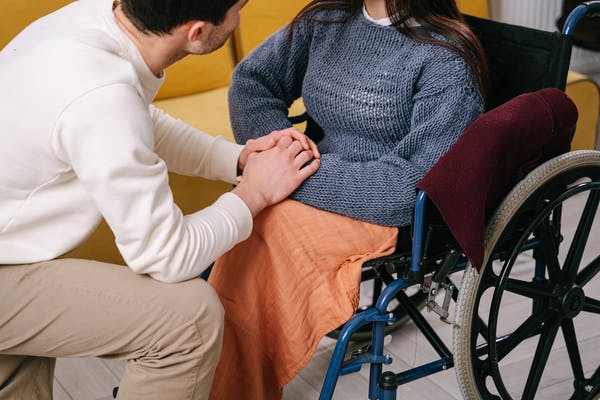Having a loved one with a disability can be challenging, but it can also be rewarding. Disabilities come in various forms, and each one affects a person differently. Some disabilities are visible, while others are not. If you have a loved one with a disability, you may feel unsure of how to best support them. However, by educating yourself and understanding their needs, you can offer the support they need to thrive, so here are a few ideas that will help you support a loved one with a disability.
Educate Yourself On Their Disability
Educating yourself about your loved one’s disability is essential to understand their experiences and challenges. By learning about their condition, you can better support them in their daily life. Research the symptoms, causes, and treatments of their disability. You can find resources online, in books, or through advocacy groups or support organizations. You can also talk to your loved one about their experiences and ask questions to gain insight into their condition. However, keep in mind that each person’s experiences with a disability are unique, and not everyone will experience the same symptoms or challenges.
Listen To Them
Listening to your loved one with a disability is crucial to understand their needs and experiences. Ask them about their disability, how it affects them, and what support they need. You can also ask them about their goals, interests, and challenges. Active listening involves giving your full attention, asking questions, and clarifying information. This approach can help you understand their perspective better and offer more effective support.
Be Patient
Living with a disability can be frustrating and challenging, so it’s crucial to be patient with your loved one. They may need more time to complete tasks, require extra help, or experience difficulties that can be emotionally taxing. Being patient means giving them space and time to complete tasks without rushing or pressuring them. It also means being supportive and understanding when they experience setbacks or challenges. This is especially true if your loved one needs special care, so make sure they get the respite care they need and be there for them every step of the way.

Offer Practical Help
Your loved one may need practical help with daily tasks or activities. For example, they may need assistance with personal care, cooking, cleaning, or transportation. Offering practical help means being respectful of their autonomy and preferences. Some people may prefer to do certain tasks independently, while others may welcome assistance. It’s essential to ask them how you can help and respect their wishes.
Advocate For Them
Advocacy is an essential part of supporting a loved one with a disability. Advocating for them means speaking up for their rights, needs, and interests. You can help them access resources, navigate healthcare systems, and ensure they receive the accommodations they need. Being an advocate means being informed about their disability and understanding the laws and policies that affect their lives. It also means being their voice and fighting for their rights when necessary.
Encourage Them
Living with a disability can be isolating and challenging, so it’s crucial to offer encouragement and support. Encouraging your loved one means recognizing their strengths and accomplishments, no matter how small. You can help build their confidence and self-esteem by acknowledging their progress and achievements. Encourage them to pursue their goals and interests, participate in activities, and connect with others. Offer support and understanding when they face challenges or setbacks.

Be Inclusive
Including your loved one in family events and activities is essential to make them feel valued and included. Being inclusive means avoiding assumptions about what they can and cannot do and involving them in decisions that affect them. It’s also important to be mindful of physical and social barriers and work to remove them. Being inclusive means treating your loved one with respect and understanding, and recognizing their unique abilities and strengths.
Supporting a loved one with a disability requires patience, understanding, and empathy. By educating yourself about their condition and learning more about the ideas mentioned here, you can be a better support system for your loved one. Remember to communicate openly, respect their autonomy, and celebrate their achievements. Supporting a loved one with a disability can be challenging, but it can also be a rewarding and fulfilling experience that brings you closer together.
Author Bio
Diana Smith is a full time mom of two beautiful girls interested in business and marketing related topics.
is a full time mom of two beautiful girls interested in business and marketing related topics.
In her free time she enjoys exercising and preparing healthy meals for her family.

































